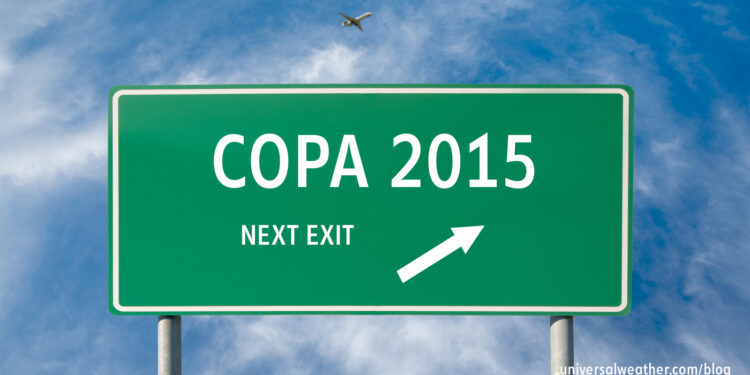Bizav Guide to COPA 2015 in Chile – Part 2: Permits, Airport Slots, and Restrictions

This is a post by author Mariana Tsymbalista. Mariana is the FBO Assistant at Aviasur, a Universal Aviation® Certified ground handler, which has an FBO in Santiago, Chile and provides ground support throughout the country. Mariana is an expert on business aircraft operations in Chile and can be contacted at marianatsymbalista@univ-wea.com.
This business aviation blog post continues from our article last week, entitled “Bizav Guide to COPA 2015 in Chile – Part 1: Airports & Services.”
Landing permits and airport slots will be required for business aircraft operations to all airports in Chile during the COPA 2015 period. While slot issues are not anticipated during this time, the situation could change at a moment’s notice, so be prepared and avoid last minute changes that may affect your trip.
The following is an overview of what you need to know:
1. Chile landing permits
Landing permits are required for both private non-revenue and charter (non-scheduled commercial) operations to Chile. Direccion General de Aeronautica Civil (DGAC) Chile processes landing permit applications up to 48 hours prior to arrival, and permits are valid for a window of 24 hours. Information and documentation required for landing permits is as follows:
- aircraft type
- maximum takeoff weight (MTOW)
- country of registration
- valid worldwide liability insurance coverage
- full itinerary
- the pilot in command’s (PIC’s) name
The only document that must be submitted in advance, with your landing permit request is your insurance certificate.
2. Aircraft with more than 19 passengers
For non-scheduled flights to Chile with more than 19 passengers onboard insurance requirements differ. There is also another permit, in addition to the landing permit, that must be obtained. In this case the operator must forward insurance details in advance to Junta de Aeronautica Civil (JAC), which will approve or disapprove your operation. The process to obtain this additional permit is at least 48 business hours prior to arrival in Chile, and this application must be submitted along with your landing permit request. Note that JAC only operates during banking hours.
3. Airport slot and operating requirements
For COPA 2015 special air traffic procedures will be put into place in Chile along with new airport slot requirements and parking restrictions. Slot restrictions will be active for the entire month of June, and well into July, with additional restrictions during dates of the games.
Slots may be requested as soon as the schedule is known, but no later than 24 hours prior to operation. Slot requests for Chile are normally made to the airport slot coordinator either from the operator, 3rd-party provider, or ground handler. Requests are made via email, and the airport slot coordinator requests that you place ‘’Slot request, Cancelation or Modification” in the subject area of your email when communicating regarding slot issues. The slot coordinator, typically, will respond immediately to acknowledge that he/she received the request, but it takes approximately six hours to process the actual request. If a requested slot time is not available, the coordinator will advise the next best option. Note that slot confirmation numbers are not issued. While it’s not necessary to make any slot notations on your flight plan, we recommend that you do so.
Keep in mind that parking is requested separately from airport slots. So, you may request slots and parking simultaneously to the different government entities (airport slot coordinator and airport authority). Parking confirmations are the responsibility of the local airport.
While we anticipate that Santiago (SCEL) will have ample parking during the COPA 2015 period it’s likely there will be parking issues at Vina del Mar-Valparaiso (SCVM), La Serena (SCSE) and Temuco (SCQP).
4. Airport slot request procedures
When requesting airport slots the operator should provide:
- destination in Chile as well as previous departure airport
- air carrier code or flight number and type of aircraft
- aircraft airworthiness and certification certificates
- estimated date/time of arrival and departure
- estimated length of stay at the airport
- fixed-base operator (FBO) or handling agent services you’ll be using
- hotel and local transportation services (optional)
5. Airport slot validity and revisions
Slot deviations are rather tight at -5/+15 minutes. If you miss your slot time, for any reason other than weather, you’ll need to request a new slot. Note that the closer to the time of your operation the fewer slots will likely be available.
6. Airport slot priority
For this event, general aviation (GA) holds the lowest priority in terms of slot issuance. Slot priority is determined in accordance with flight status in the following order:
- regular flights, subject to standard schedules
- certified non-regular national and international operators (AOC)
- non-regular national and international carriers
- air taxis and other commercial operations
- private operators
7. Missing an airport slot
If an operator misses an airport slot time, a new slot request will be necessary. A slot missed due to adverse weather will be treated as a priority application in terms of assignment of any available slot or opportunity slot. Note that opportunity slot means that the operator is put on the list to obtain the first available slot when slots become available.
8. Airspace and airport restrictions during COPA 2015
At this time there are no special operating restrictions implemented by DGAC regarding overflight of airports, stadiums, or event locations. We highly recommend, however, that operators review NOTAMs daily for any such potential restrictions which may be put into place as we closer to the event date.
9. Additional reading: COPA 2015 – Series Index
Note: Links will be updated as articles are published.
Conclusion
Be aware that operators require landing permits for any travel to Chile—in addition to parking and slots. Remember that slot times are very tight, and familiarize yourself with the process. Lastly, stay on top of NOTAMs as information may change as the event draws closer.
Stay tuned for Part 3, which covers customs, immigration, security, and weather information for your trip to COPA 215 in Chile.
Questions?
If you have any questions about this article or would like assistance planning your trip to Chile, contact me at marianatsymbalista@univ-wea.com.
COPA 2015 is a trademark of the South American Football Confederation, CONMEBOL. Universal is not in any way affiliated with the South American Football Confederation, CONMEBOL.




